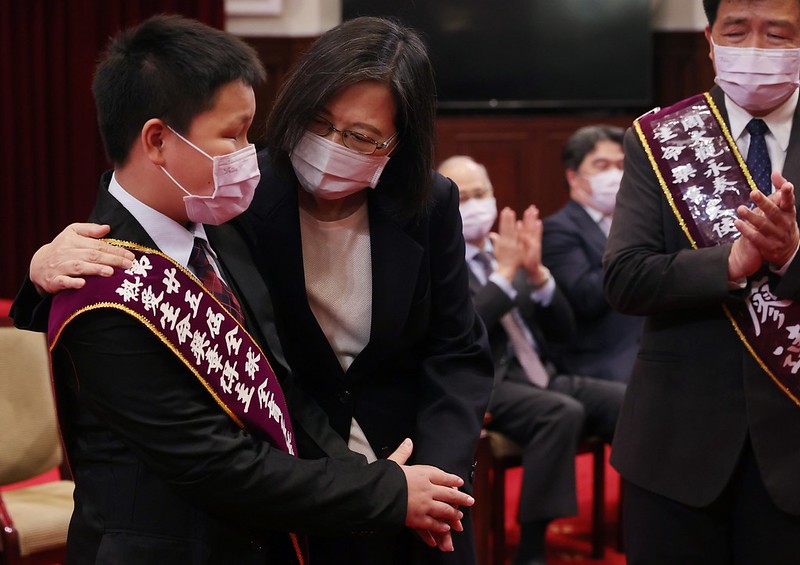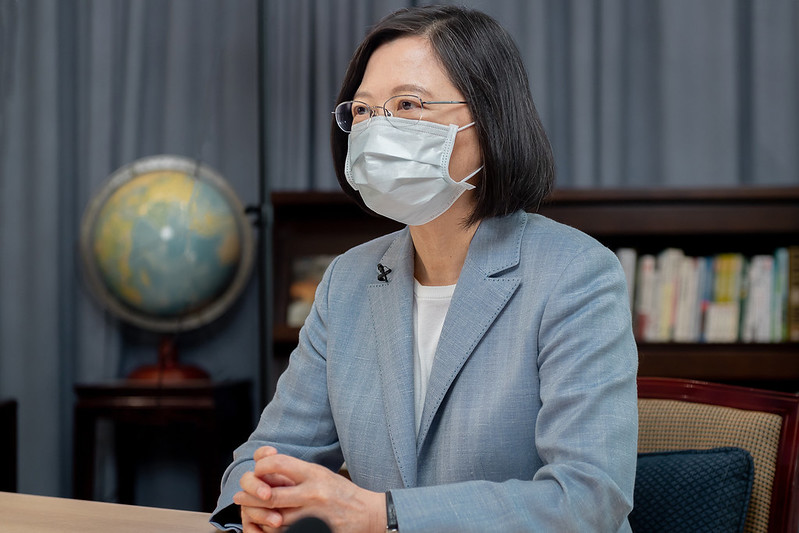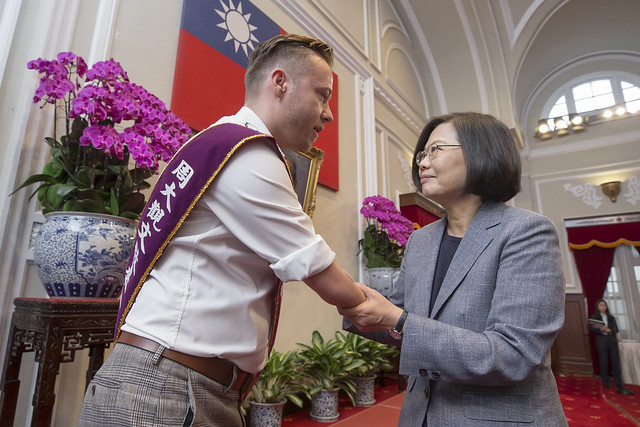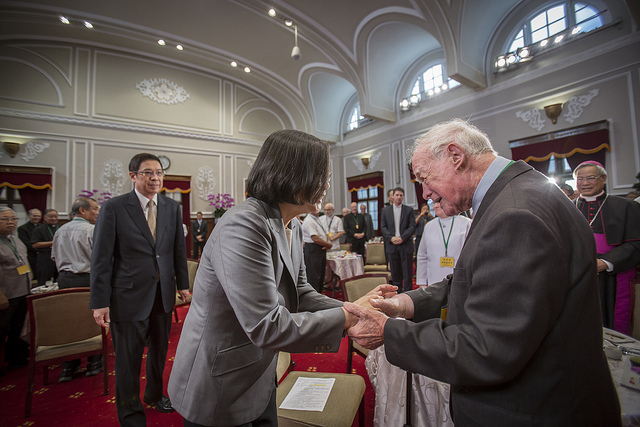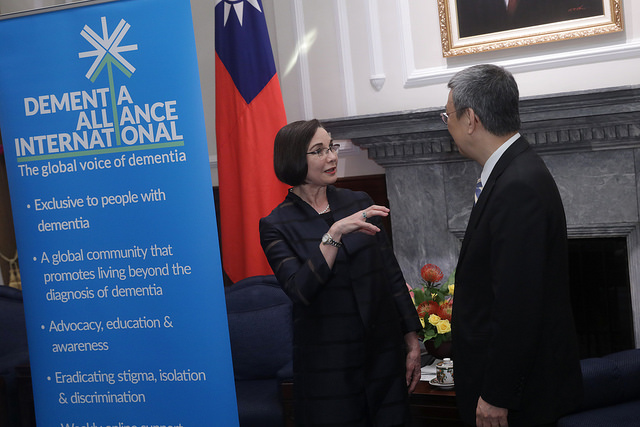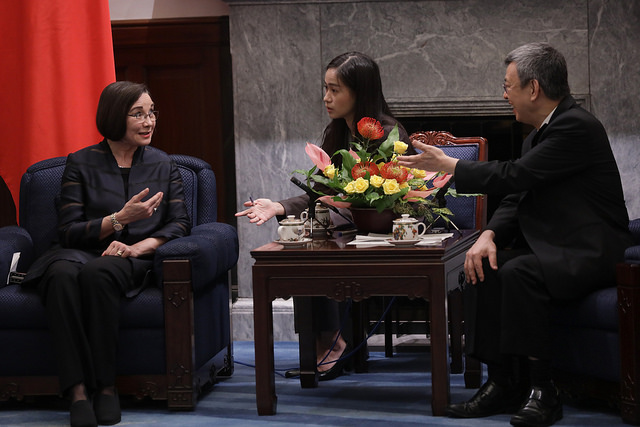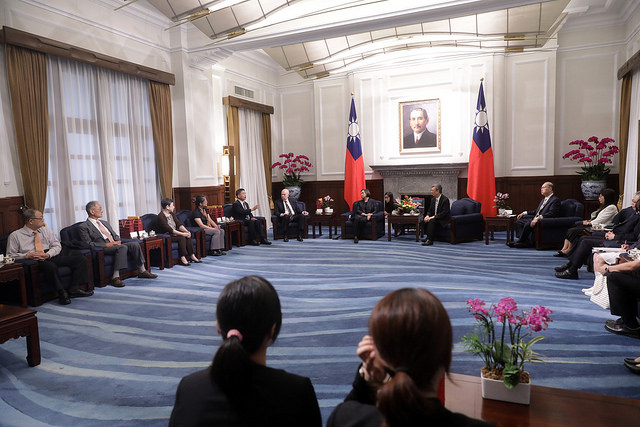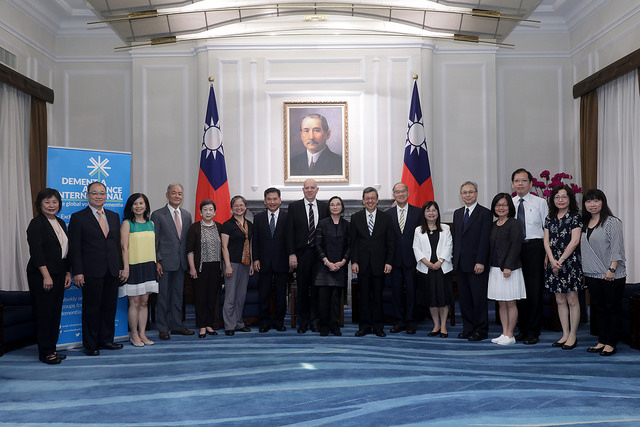News & activities
 News releases
News releases
On the morning of August 28, Vice President Chen Chien-jen met with Dementia Alliance International (DAI) Chair Kate Swaffer. The vice president thanked Chair Swaffer for speaking up on Taiwan's behalf for many years in important international venues, and also said that Taiwan looks forward to receiving her continued support in the international arena.
In remarks, Vice President Chen stated that he was delighted to meet with his visitors, and also expressed gratitude for the many valuable suggestions that Chair Swaffer and her husband gave during several previous visits to Taiwan. The vice president then took the opportunity to thank her for voicing support for Taiwan for many years in important international venues like the World Health Organization and Alzheimer's Disease International (ADI). He went on to say that her voice has made the international community aware of Taiwan's efforts to address dementia, making her an extremely valuable ally.
Chair Swaffer has been diagnosed with early-onset Alzheimer's, said the vice president, and for many years has been a devoted advocate, spokesperson, and activist for people like herself. Ms. Su Hui-mei (蘇惠美), who was on hand, has also been diagnosed with Alzheimer's, and the vice president commended her active involvement in activities for people with the disease. In the future, the vice president said he hopes that the DAI will help foster exchanges between Taiwan and international organizations, so that we can develop the services that dementia patients in Taiwan need most.
Vice President Chen pointed out that last year, the World Health Assembly has passed a Global Action Plan on the Public Health Response to Dementia 2017-2025, and Taiwan's Ministry of Health and Welfare has also launched the "Taiwan Dementia Policy: A Framework for Prevention and Care 2.0." Taiwan's 2.0 program has seven major strategies that can be grouped into three major tasks.
The first task is to conduct an overall review of the relevant laws, and raise public awareness and acceptance of dementia. Since many children don't understand dementia, they can't get along with older people in their own families. So going forward, the vice president said, Taiwan will make dementia education part of the elementary and junior high school curriculum to resolve these issues.
The second major task, Vice President Chen said, is to create a comprehensive diagnostic, treatment, and care network. So the Taiwan government will be actively setting up dementia community care centers and community-based service branches, and start medical care and treatment early. And for those with a confirmed diagnosis, we'll provide consultations and care services in a community nearby. Diverse support services will also be widely accessible to relieve pressure on caregivers and families.
The vice president further explained that the third major task is to establish a national platform to collect and analyze dementia information. Through this nationwide system, we can immediately grasp the status of dementia patients, quickly analyze which services they need most, and take remedial action.
Vice President Chen stated that system implementation is well underway, and the government has already set up a mechanism for comprehensive, long-term tracking, a responsible oversight unit, and a mechanism to integrate cooperation between ministries and agencies. The government will invest a total of NT$9 billion in those three tasks at various levels, working together to promote the rights and interests of dementia patients, and take care of all their needs.
Since so many services are offered, the vice president said, it's also important that we help the public understand how to use them. Last year, Taiwan set up a long-term care services hotline so that our citizens can get all the information they need by dialing 1966. Looking ahead, we also plan to share Taiwan's achievements in dementia prevention and care with the international community. Caring for dementia patients, and our Long-term Care 2.0 plan, are major tasks and a tremendous responsibility. So the government is doing everything it can to make sure those policies are fully implemented.
Vice President Chen closed his remarks by once again welcoming Chair Swaffer and the other visitors to Taiwan, and thanked the DAI, ADI, Taiwan Alzheimer's Disease Association, and other domestic organizations for their efforts to protect the human rights of dementia patients. He also said he hopes Chair Swaffer will continue to support for Taiwan in the international arena.
